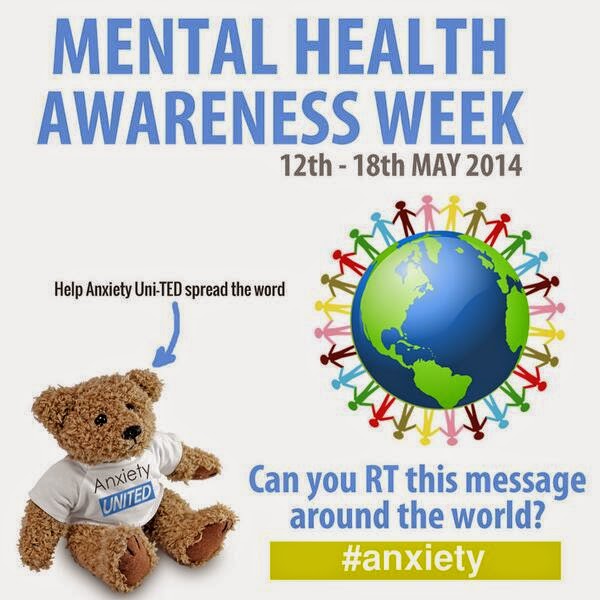Today I am interviewing the lovely Laura who has kindly agreed to answer some questions and share her story.
1. You were diagnosed with depression aged 10/11 and given medication. Were you offered any other support from the doctors?
No, they gave me the tablets and that was that - They're the reason I spent a Very long time not trusting doctors (and still don't some of them)
2. What effects did the medication have on you?
It's so difficult to explain, the only thing that gets close is to say that they made me feel like I was trapped inside my own head and couldn't get out. They made me Very depressed and made me very very angry. Years later I saw a television programme discussing the effects that that particular medication could have on people and wasn't surprised to find out that it had a tendency to make people worse and even drive them to suicide.
3. Looking back do you think they could have done things differently?
I don't know. I was incredibly young and I, now, know that I have chronic depression based upon chemical imbalances inside me so medication is recommended but I was too young for most of them. I needed support but I don't know what they could have done.
4. Understandably you refused to take medication. What other techniques did you use to cope?
I'm not sure that I did cope, not very well really. My attendance at school was awful and I had episodes of incredibly bad depression. I learned to talk about it very openly, which helped; talk about it in a distanced manner and it can almost help you feel distanced. I had various episodes of not coping but I just... 'did' - I taught myself, I guess? And I talked to people, a lot, the Internet became a big refuge for me as I grew up. The older I get the more I learned to cope as I began to learn the signs that I was uncontrollably sad for No reason, I became more aware and that helped a lot because it's easier to weather something if you can tell yourself that it Will end and that you are OK (Easier but still not easy)
5. You mentioned you had a break down and were given medication. Did it help?
The anxiety medication helped and depression medication helps sometimes. It helped me get back on track that time but when I have a dark period, it's dark whatever I do.
6. What medications have they offered?
Goodness I couldn't list them - I've tried probably upwards of ten different anti depressants and I take propranalol, which is a beta blocker, to help with anxiety.
7. You see mental health professionals, how do they help you? Who do you see?
I don't see anyone anymore. I saw a mental health nurse for a while and he was great - He helped me realise that what I felt was OK and not my fault, he helped me realise I didn't have to always force myself to be strong, that I could sometimes let myself seem weak and that was OK (Since I had my son I'm much more prone to showing the weak as I have become much more emotionally sensitive)
I was offered a cognitive behavioural therapy course which, I imagine, is really helpful for a lot of people but it didn't work for me - After a life time of teaching myself how to cope, I didn't need to be taught how to cope. That's not to say I don't think others should try it, it could be fantastic for the right candidates.
8. You have fibromyalgia. What help were you offered for that condition?
Fibro is a tough one because different areas have different support - Some sufferers regularly see a dermatologist, and some of us are left in the care of our GP. There are certain anti depressants which are known to help certain people with their fibro so we tried those, with no luck.
I was offered a pain management course but it ended up sounding much the same as a CBT course and the doctor agreed it wasn't for me. I get pain relief, mainly, but it doesn't help much.
Fibro adds a different edge to depression - I've always known it was likely I'd be battling depressive episodes for my whole life but now I have to accept that I will have this very painful, draining condition with endless symptoms, for the rest of my life and that adds to the depression a lot. But on the other hand it also reminds you of what's good in life and what matters and that helps, some days.
We all have down days, those with perfect health and those with health problems and mental health problems. It can just be a bit harder to recover from those down days when mental health and other health conditions are involved.
A massive thank you to Laura for taking time to answer my questions and sharing her experience.
You are a wonderful strong woman Laura!! Never forget that.
To read some of Laura's wonderful posts please visit her blog at http://www.petitmoi-bigworld.co.uk/

No comments:
Post a Comment